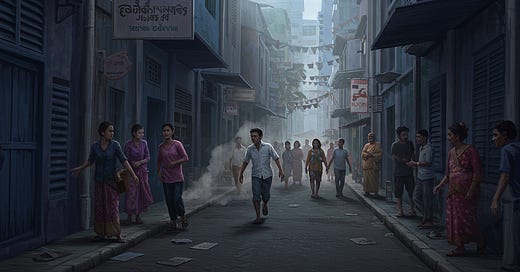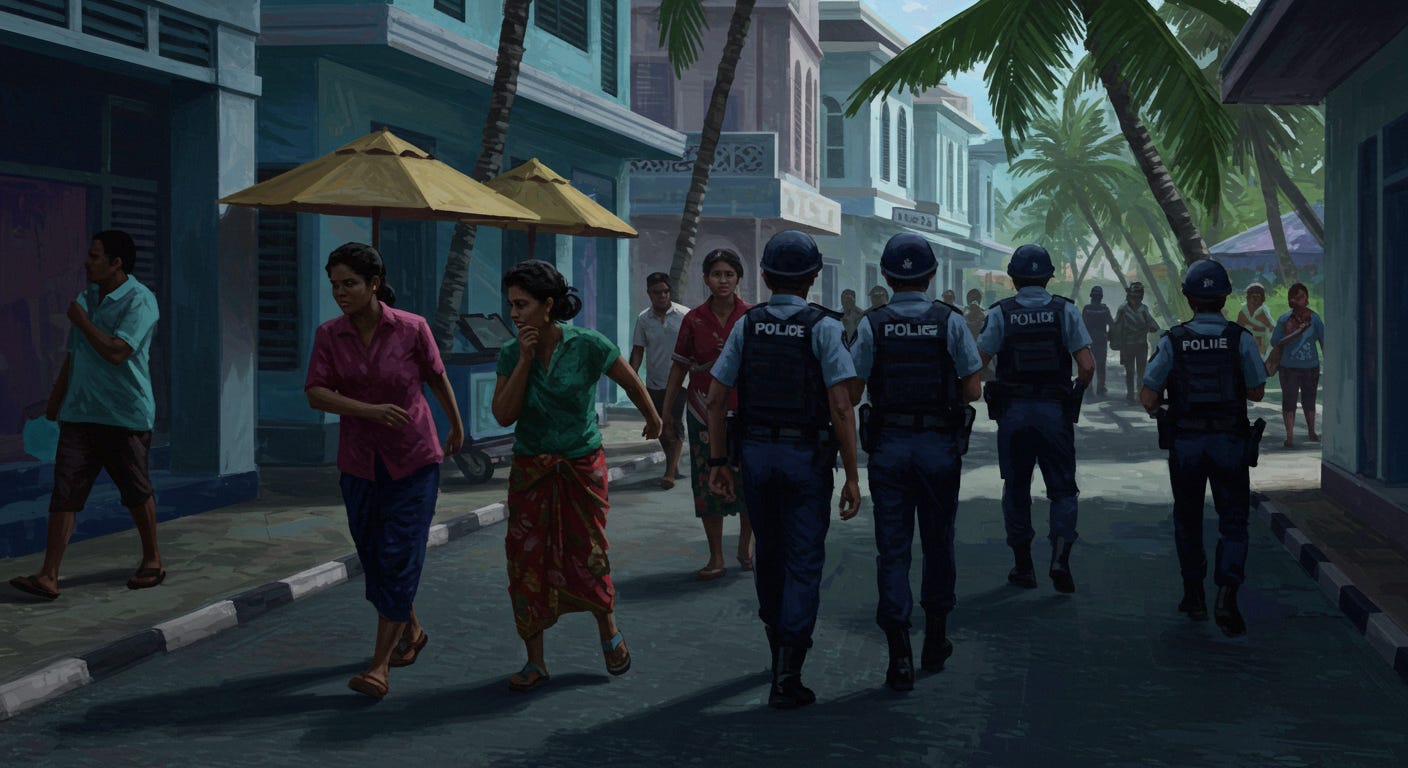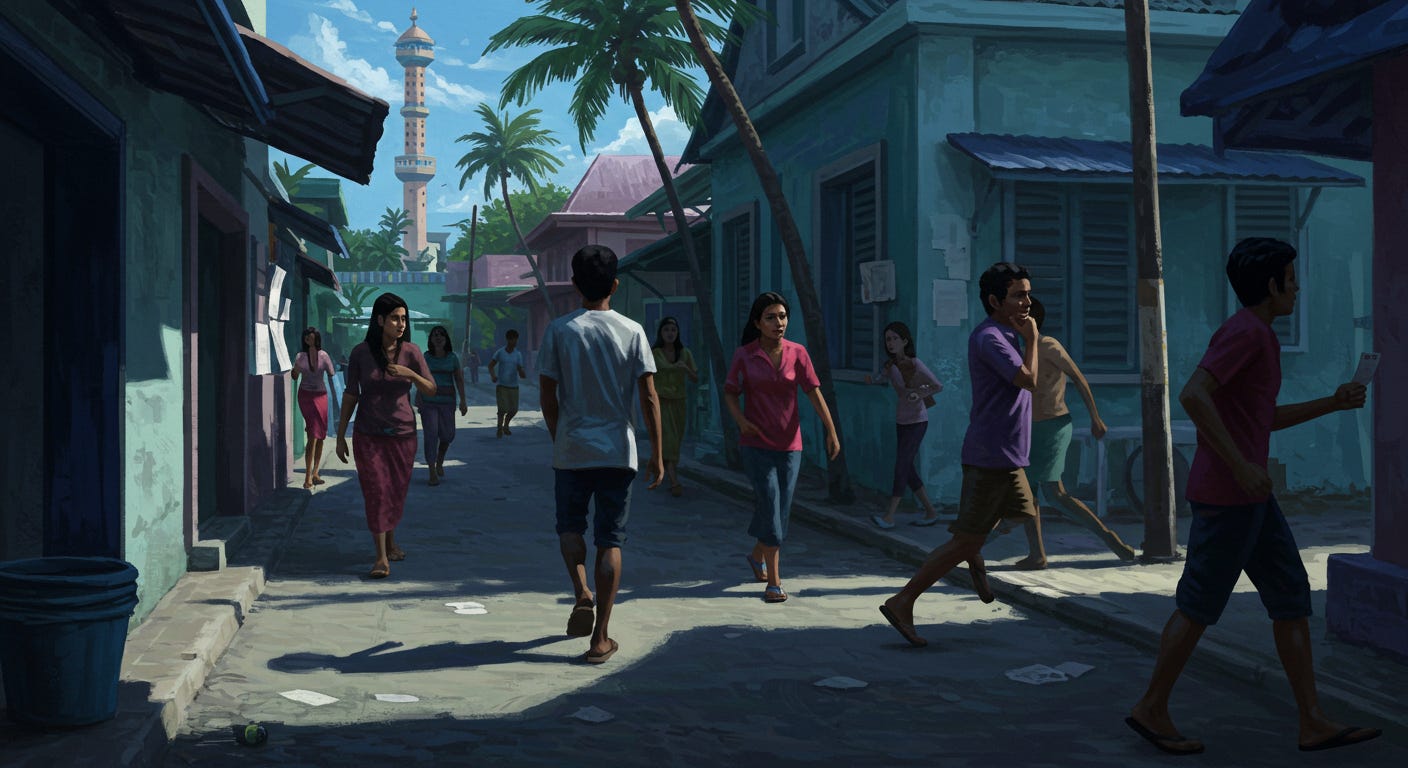The Utopia of Smoke; Purity as a Pretext
Why the Generational Tobacco Ban in the Maldives Is More Symbol than Solution
In an era marked by climate anxiety, proxy wars, and algorithms reshaping even our most intimate vices, the notion of an entire generation free from tobacco seems, at first glance, like a modest civilizational triumph. That is precisely what the Maldives has just legislated: a lifetime ban on the sale of tobacco products to anyone born on or after January 1, 2007. A bold gesture. A feel-good headline. An administrative utopia turned into decree.
But when politics turns into pure symbolism, it often detaches from its effectiveness. The generational ban approved by the Maldivian Parliament on May 13 is not just a legal experiment. It is also—and perhaps above all—a moral statement: a reaffirmation that the State, as an island of particular interests, clings to the fantasy that virtue can be imposed by decree. It doesn’t matter that the country also bans access to less harmful products, like e-cigarettes. It doesn’t matter that there are already clear signs of a growing illicit market and stubbornly high youth smoking rates. In this story, the purity of the message outweighs the complexity of the problem.
The Coalition of Asia Pacific Tobacco Harm Reduction Advocates (CAPHRA) has put it with uncomfortable clarity: legislating against tobacco without offering realistic alternatives may be worse than doing nothing at all. In the words of Nancy Loucas, one of its most outspoken voices: “Passing laws that ban tobacco does not eliminate demand. It will only lead to an increase in smuggling, exposing young consumers to more harmful and lower-quality illicit products.”
A warning that echoes the failures of other crusades: alcohol in the 1920s, cannabis through much of the 20th century, and hard drugs today. Prohibition doesn’t suppress desire—it merely banishes it to the margins, where opacity makes it more dangerous.
Purity Policies That Maim
Banning in the name of public health has a long, contradiction-filled history. It carries the moral flavor of the common good, but also the disciplinary reflex of punishment. And it rarely lingers on the nuances of desire, of habit, of that informal economy that thrives precisely where power chooses not to look. In the Maldives—a country with apparent limitations in enforcing such an ambitious law—who will watch the street corners? What will happen when the law takes effect and the cigarette, that symbol of the forbidden, glows once more between teenage fingers, cloaked in the uncertain allure of risk?
New Zealand, a pioneer in this type of policy, offers a less celebrated lesson. After passing similar legislation in 2022, the country reversed course two years later. Not out of weakness, but out of clarity. Associate Health Minister Casey Costello put it bluntly before Parliament: eliminating supply does not eliminate demand; it only breeds desperation. She didn’t sugarcoat it—no one quits smoking by decree. They do it—if they do it—with support, education, and access to less harmful alternatives. As Nancy Loucas already warned, that is where fundamental transformation lies—not in repression. In New Zealand, for example, effective vaping regulation helped cut daily smoking rates from 16.4% in 2011–2012 to 6.8% in 2023.
None of this is anecdotal. It’s the kind of evidence often left out of prohibitionist rhetoric, eager to impose absolute rules on a world woven from nuance. A recent study in the United Kingdom warns that such bans can trigger significant side effects: job losses in small businesses, regional inequality, weakened local investment, and the growth of parallel markets that become increasingly difficult to control.
And then there’s the legal problem—perhaps the most troubling of all: what does it mean for a group of lawmakers, in the name of the State, to deny an adult access to a legal product solely because they were born after a specific date? What does that reveal about our relationship with the law, health, and the idea of health justice?
To Purify, to Punish, to Divide
Public policy needs far more than good intentions. It demands clarity. It requires the humility to accept that human behavior rarely fits into ideal models. CAPHRA repeats this with scientific insistence: without harm reduction strategies—without regulated alternatives, well-designed educational campaigns, and real support mechanisms—these bans don’t transform society; they merely fracture it between those who can dodge the rules and those who suffer them with no way out.
This is not, of course, about glorifying smoking, nor about romanticizing an industry that for decades masked its harm behind the aesthetics of pleasure. But it is about recognizing that the problem doesn’t vanish by denying it. And that criminalizing consumption—whether directly or by omission—can open more wounds than it seeks to heal.
In the early decades of the 21st century, more and more governments are reaching for easy answers to complex problems, and the Maldivian ban acts as a mirror reflecting an uncomfortable image: that of the State, under the sway of prosthetic influences, choosing to forbid rather than educate, to punish rather than support. Perhaps out of fear. Perhaps out of helplessness. Perhaps to serve other interests. Or perhaps, simply, because we still struggle to accept that public health is not built on purity—but on conflict.
Final Note
On May 31, World No Tobacco Day, the World Health Organization will present its most prestigious award of the year to the President of the Maldives, Mohamed Muizzu. The honor is in recognition of his “leadership” in tobacco control policies, shared with the Ministry of Health of Mauritius. In total, 36 recipients will be honored worldwide. The number—neat, generous—suggests that virtue, like smoke, tends to spread easily when the cameras are rolling.
President Muizzu has been the architect of one of the region’s most ambitious and celebrated pieces of legislation: a generational ban on tobacco use, sale, and distribution to anyone born on or after January 1, 2007. The measure is complemented by raising the legal smoking age—now set at 21—and a total nationwide ban on vaping.
From afar, the WHO applauds. From within, one might ask: Who will celebrate when the law becomes a trench, when virtue turns into surveillance, when public health transforms into a new regime of exclusion? Because awarding a policy does not make it just. It legitimizes it. Shields it. Enshrines it as a symbol. And in these times—so hungry for gestures, so allergic to complexity—the symbol matters more than the solution.







Another fabulous blog.